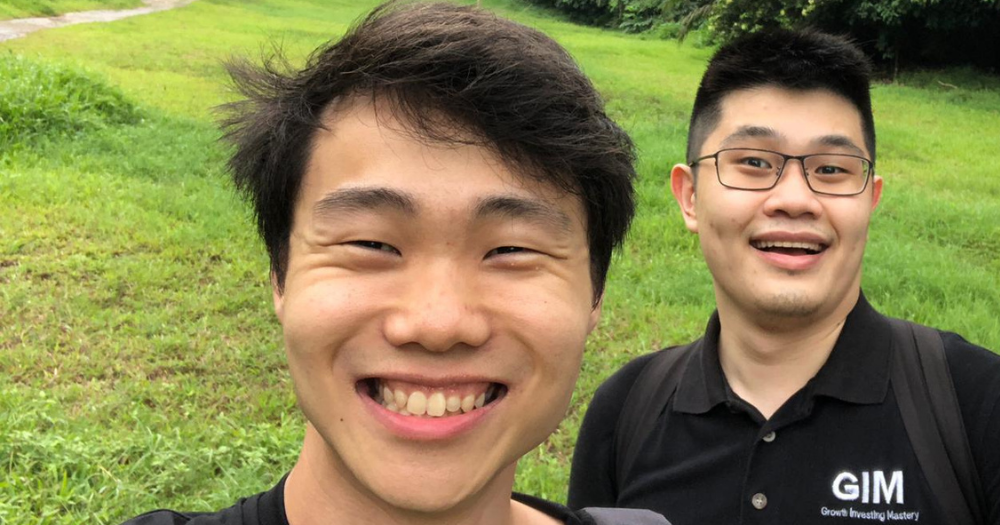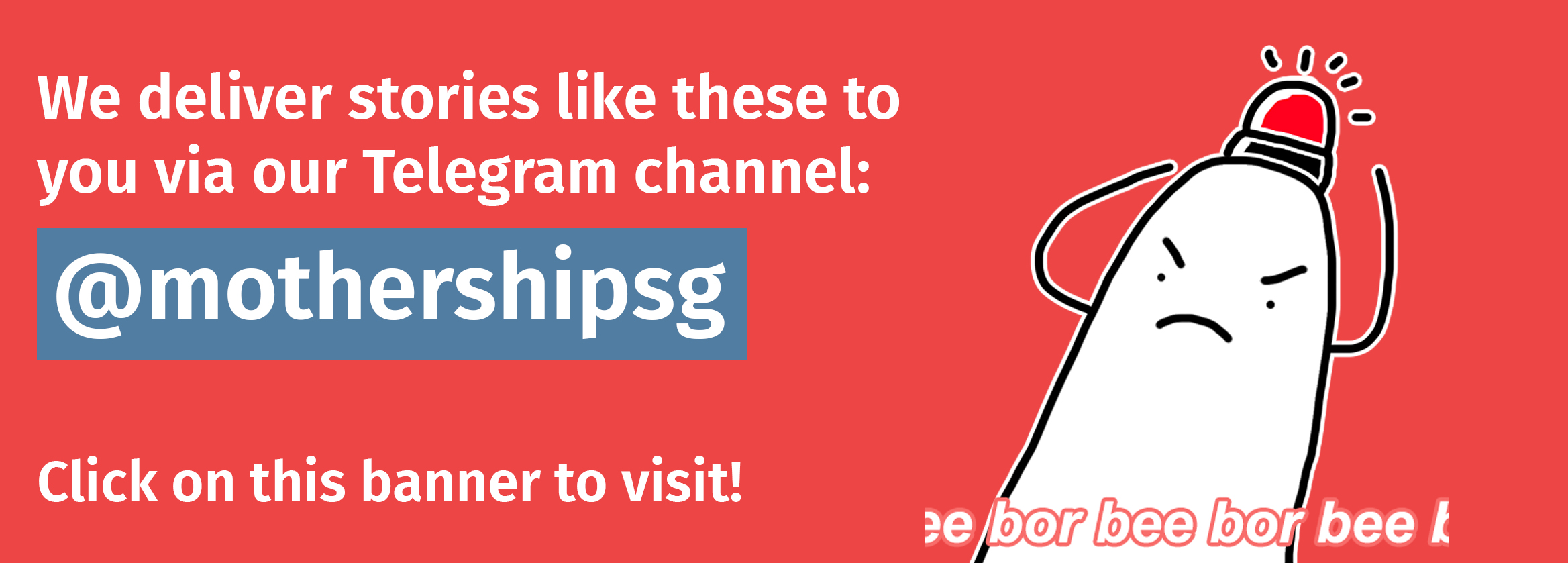PERSPECTIVE: Jonathan Ng and Jonathan Ang met as first-year students at Singapore University of Technology And Design (SUTD) in 2016, where they were both studying engineering.
The two became fast friends, joining case competitions together, and encouraging one another to pursue a different trajectory from most students — they both took multiple gap years, which eventually led them down the paths they are on now.
Ang, 25, is the co-founder of 10x Capital, a local education company. He also has a YouTube channel with over 5,000 subscribers, where he educates people on improving their investing results by analysing high-growth businesses.
Ng, 27, is the co-founder of Lord of the Chords, a music theory card game that has generated more than S$500,000 in sales on Kickstarter.
Here's what Ang and Ng shared about their decisions to take gap years, and their advice for why others should do so too, based on an episode of Ang's Growth Investing Secrets Podcast on the topic and a conversation they had with Mothership.
As told to Jane Zhang and from podcast episode
What were each of your gap year experiences like?
Ng: I got into SUTD in 2015. I got in, matriculated, met all my friends at that orientation, and then I went on a gap year to London — this school called Makers Academy. It's a 90-day programme where you learn coding.
So, 2015 to 2016, I was on a gap year. Then I resumed school in 2016, and Jang was my classmate.
Then we were in school together for one year, in 2017, and we went to a summer programme together at Zhejiang University, as part of a school thing.
And then, in 2017, when school was going to resume in August, I think we both went back for a few months, and it was so bad.
I actually had a lot of mental health issues at the time, and I skipped my exams, I failed everything. And then the school gave me a mercy gap year.
And actually that year was was very good for me because otherwise, it would have gone on a downward spiral. That was really good to have that time to prioritise mental health, because mental health equals health, for me.
And then, 2018, I was supposed to go back to school in August. I went for two weeks or something, and it was like, I just can't do this.
That time, I had an internship, as a result of school, and the internship launched me forward into entrepreneurship and everything.
So then, 2018 I started my company, and 2019, we did the Kickstarter.
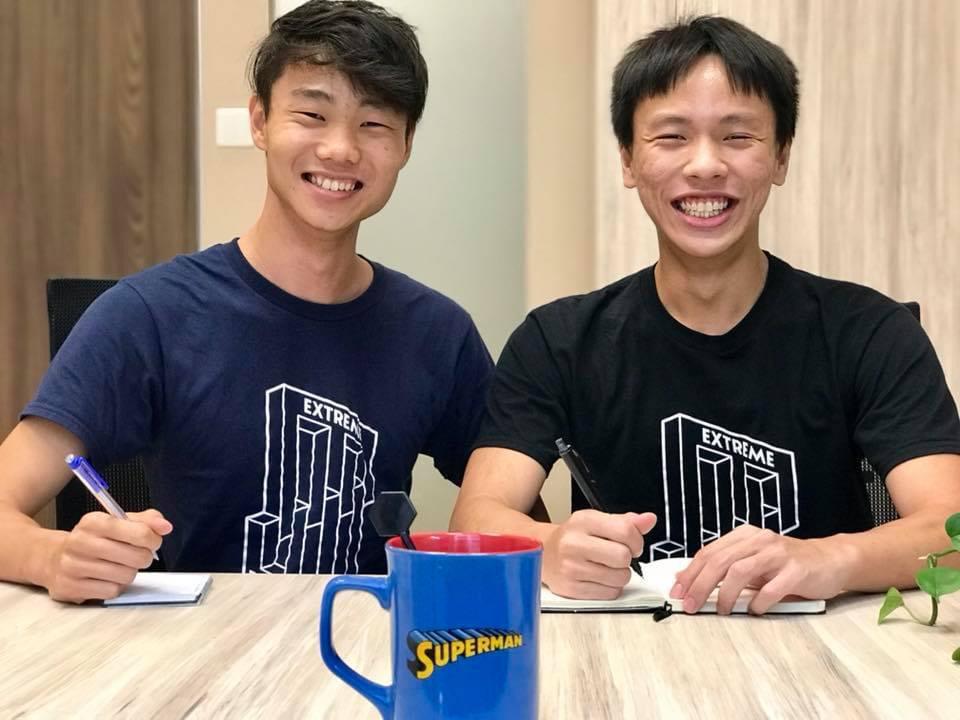 Ng (left) and Lord of the Chords co-founder Keith Teo working on the idea while Ng was on his gap year. Photo courtesy of Jonathan Ng.
Ng (left) and Lord of the Chords co-founder Keith Teo working on the idea while Ng was on his gap year. Photo courtesy of Jonathan Ng.
Ang: For me, I had the "get good grades, get a good job" kind of mindset. So in the first year, I was just trying to get good grades, and then towards the last part of the year, Jon actually introduced me to the world of competitions.
That's where I got the idea that I don't have to study so hard to actually do what I love in life, to earn money.
So, after being influenced by Jon in the first year, I decided to take a gap year. I interned in an investment company, to explore whether I wanted to pursue investing as a career.
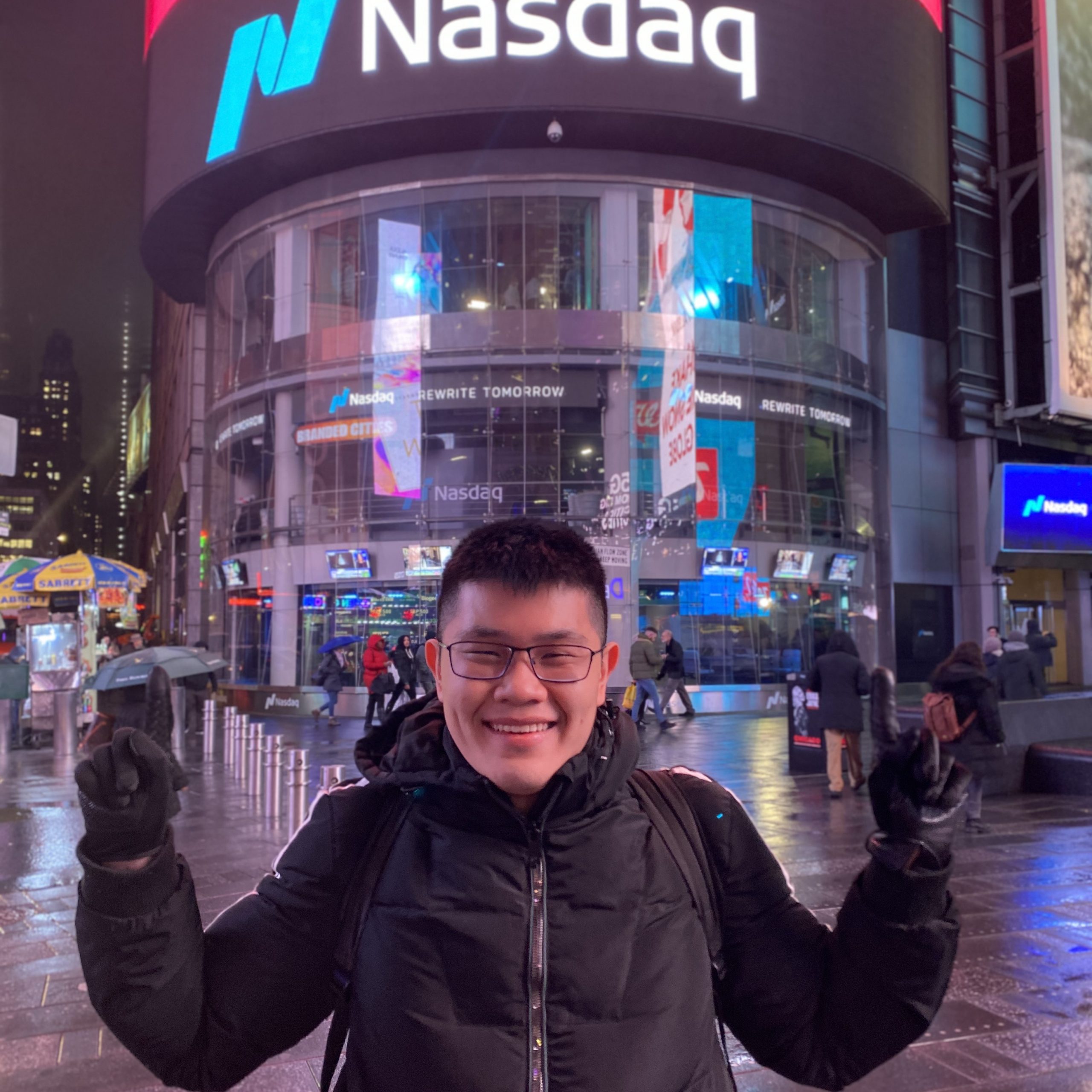 Ang was able to travel to the U.S. to meet prominent investors and companies during his gap year. Photo courtesy of Jonathan Ang.
Ang was able to travel to the U.S. to meet prominent investors and companies during his gap year. Photo courtesy of Jonathan Ang.
And after the gap year, I was kind of undecided, and I went back to school for one term, for three months. And just like Jon, I felt like, because I'd experienced one year of doing what I love, it was just so painful to go back to school.
That was so painful that I decided, okay, I'm going to take another leap of faith to find out if I really want to do investing as a career and make it full-time without going into it, without a degree.
So that's why in 2018, I took my second gap year.
In my second gap year, I started my company. And ever since, you know the opportunity cost of going back to school was really high. The business was doing well, it was growing.
And I felt that our mission to put one investor in every household seemed like it was slowly coming through.
So, I asked myself, do I really want to go back and study for the next two years? Because it was time sensitive and I could feel that this was a really good opportunity for us to make an impact on the world.
And lo and behold, the third year, we actually made it, and we managed to reach out to thousands of people!
Why do you feel that students should take a gap year?
Ang: I see a gap year like testing water. Once you graduate, you're very pressured to find a job. But if you're still in school, you do not have this expectation from your friends and parents that you have to find a job immediately.
And I think the thing is, most people go into their first job not knowing what they want, and they end up being stuck in that industry.
So I think investing that one year to find out [is good], rather than wasting that next five to 10 years because you are socially pressured to stay at a job because maybe you start a family, or you have obligations to pay for your student loans, and you're stuck at a job that you do not like. So why not take advantage of that gap year?
Ng: My belief is the purpose of life is to find your gift. And the meaning of life is to give it away.
We know that most people haven't found their gift — most uni students haven't found their gift, most graduate students haven't found their gift, most people never find their gift.
Why? Let me put it this way: Have you ever needed to find something, but you can't remember what it was? But you know, you need it, and you're rushing, rushing, rushing. And you just can't find it, so it's like, "Screw it, I give up."
But then later when you're relaxed and you go about your day, then you suddenly realise, "Ohhhh, yeah. That's what I needed and I know where it is."
Life is the same. You don't realise what's the thing that you want to do and where it is that you can have it until you have some space, some time to think.
The easiest way is just to take one year out from school.
Is taking a gap year risky? What about the opportunity cost?
Ang: I think that if you look at things mathematically, likely, you're probably in your 20s, and the life expectancy of an average person right now is about 80 years old. So you have another 60 years ahead of you.
So how significant is that extra one year or two years in the whole scheme of life?
Any choice that I make nowadays, I just ask myself, "Today, if I were to sit on my coffin at the end of my life, and if I look back, am I gonna regret not making that choice?"
And if that answer is yes, then I'm definitely going to go ahead. Because I don't live my life with regrets.
I really think that the most miserable state that any human being can live in is when they keep thinking, "What if I had done that?", "What if I could have...", "I could have been that.", "I should have been that."
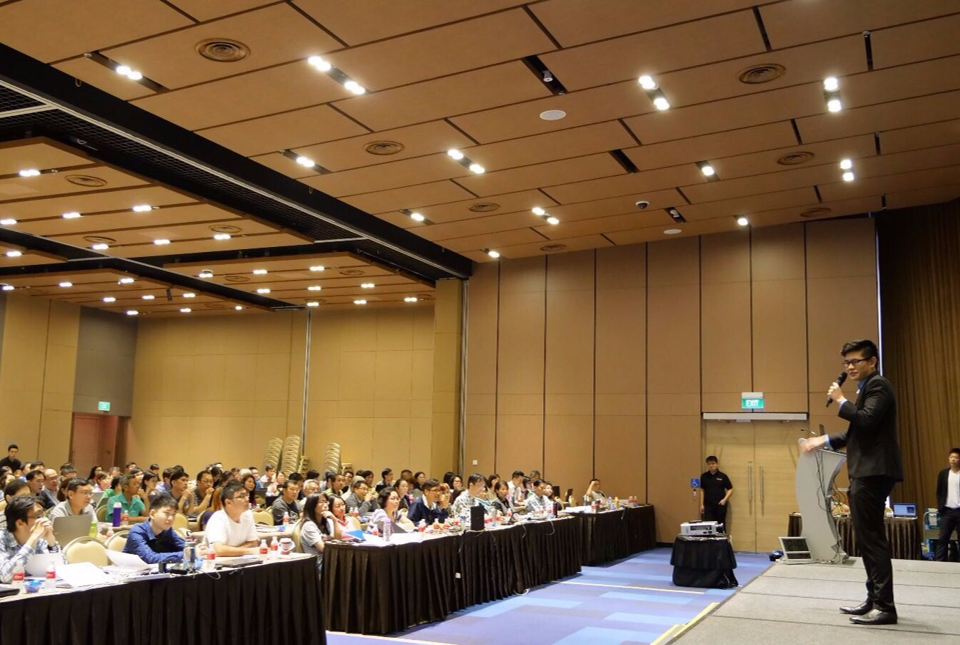 Ang sharing about investing at Expo during his gap year internship. Photo courtesy of Jonathan Ang.
Ang sharing about investing at Expo during his gap year internship. Photo courtesy of Jonathan Ang.
Ng: Naturally, it is risky — slightly — because you will be graduating later.
And I feel that even that is not a risk, because when you graduate later than others, and then when you resume school, you will know two batches of people, compared to other people who only know one batch, which means your network has doubled in size.
Also, let's say you take a gap year, and in your gap year you focus on increasing your earning power, so that your first job is going to have a higher first pay.
That rolls forward for every job change, every promotion after, so it's a huge compounding effect over your whole career.
So I would say the opportunity cost is the other way around; it's the opportunity cost of not taking the gap year and increasing your earning power so that your first pay is higher.
If that's your focus, of course. It doesn't have to be.
In terms of how exactly you increase your earning power, that's very simply just picking books and courses and projects that you genuinely believe would increase your own earning power, as opposed to what the university curriculum has been planned for you.
And the last thing I will say about what happens when you take a gap year, in terms of your income, is that when you go to that first interview for your first job, your potential employer is going to ask, "Hey, I see that you took a gap year," and they'll ask you, "Oh, what did do for your gap year? You're interesting. What did you do?"
And then you tell them what you did — all the dreams you pursued, the businesses that you crashed and burned, all the crazy stuff that you did — and that's going to make you more valuable as an employee.
Huh, how do I take a gap year if I don't even know what I want to do it during the gap year?
Ng: Who are you? Right? Who are you really?
And you don't know the answer to these questions until you know what you would do if there was nothing that you had to do. If there's nothing that you have to do, that thing that you do is who you are.
And the only way to find out is to have one year of free time to see. Test yourself — what is it that you really would do if you got one whole year to do whatever you want? Then you'll find yourself.
For me, there was a point I was very depressed, I went through so much stuff.
I remember writing down in my journal, in August 2017, "I don't know what the purpose of my life is. Therefore, the purpose of my life is to find the purpose of my life."
And then you fast forward six, seven months, I took the time to really go and invest all my time to find out what was the purpose of my life by trying all the different things that I like.
Slowly, slowly, you get closer to the answer. I'm not very sure what's the purpose of my life now. But I never would have been able to find the answer if I had to juggle assignments and exams and projects.
Ang: I think when you really know what really truly makes you happy, what truly inspires you to wake up every day, your life will be so much happier.
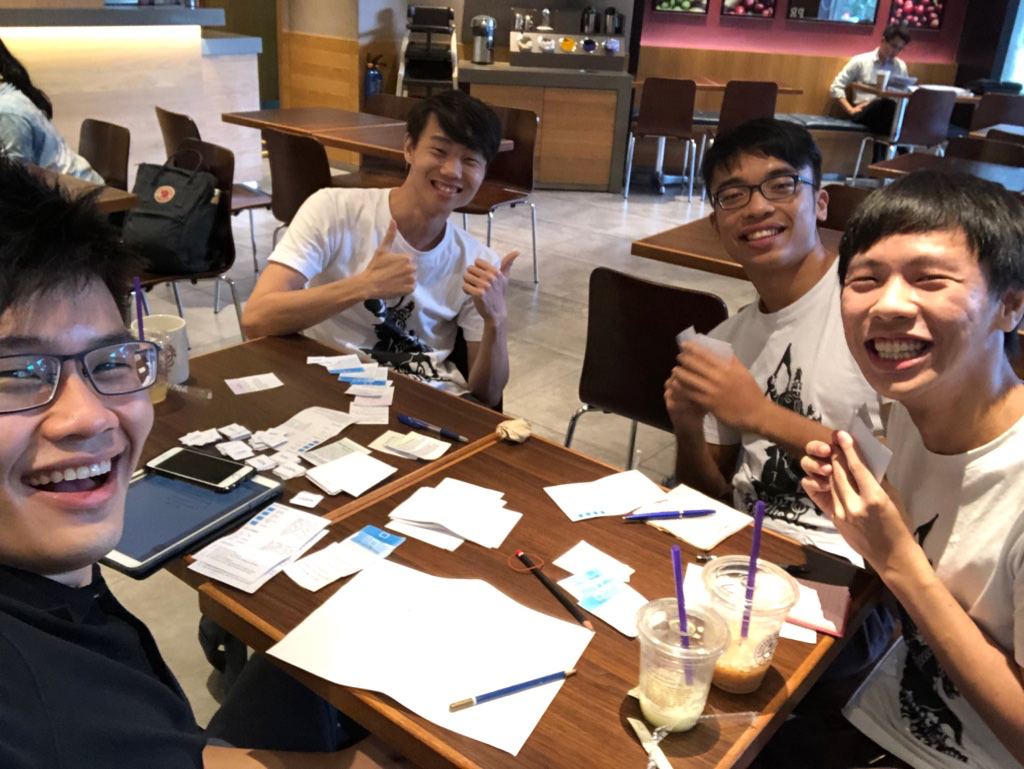 Ng and Ang collaborating, together with other friends Phang Jun Yu and Keith Teo, on an investing card game. Photo courtesy of Jonathan Ang.
Ng and Ang collaborating, together with other friends Phang Jun Yu and Keith Teo, on an investing card game. Photo courtesy of Jonathan Ang.
What about someone who is interested in taking a gap year but it might not be financially feasible for them? How can they support themselves through the gap year?
Ang: I think for people who have financial difficulties, obviously it's going to be a little tough, because probably they have to have some pretty predictable source of income. And they're probably tied by their scholarships or bursaries.
So my best advice that I can think of, from the top of my head, is to do side hustles or to take part in competitions.
There are people on YouTube earning S$6,000 a month literally selling plants. I know some of my friends who teach skateboarding, and they're earning four to five grand a month.
There's definitely something that everyone is good at.
Jon and I took part in competitions in university. We won, I think, four or five competitions in the span of three months. Eventually, we got burnt out, but we raised S$40,000 in cash.
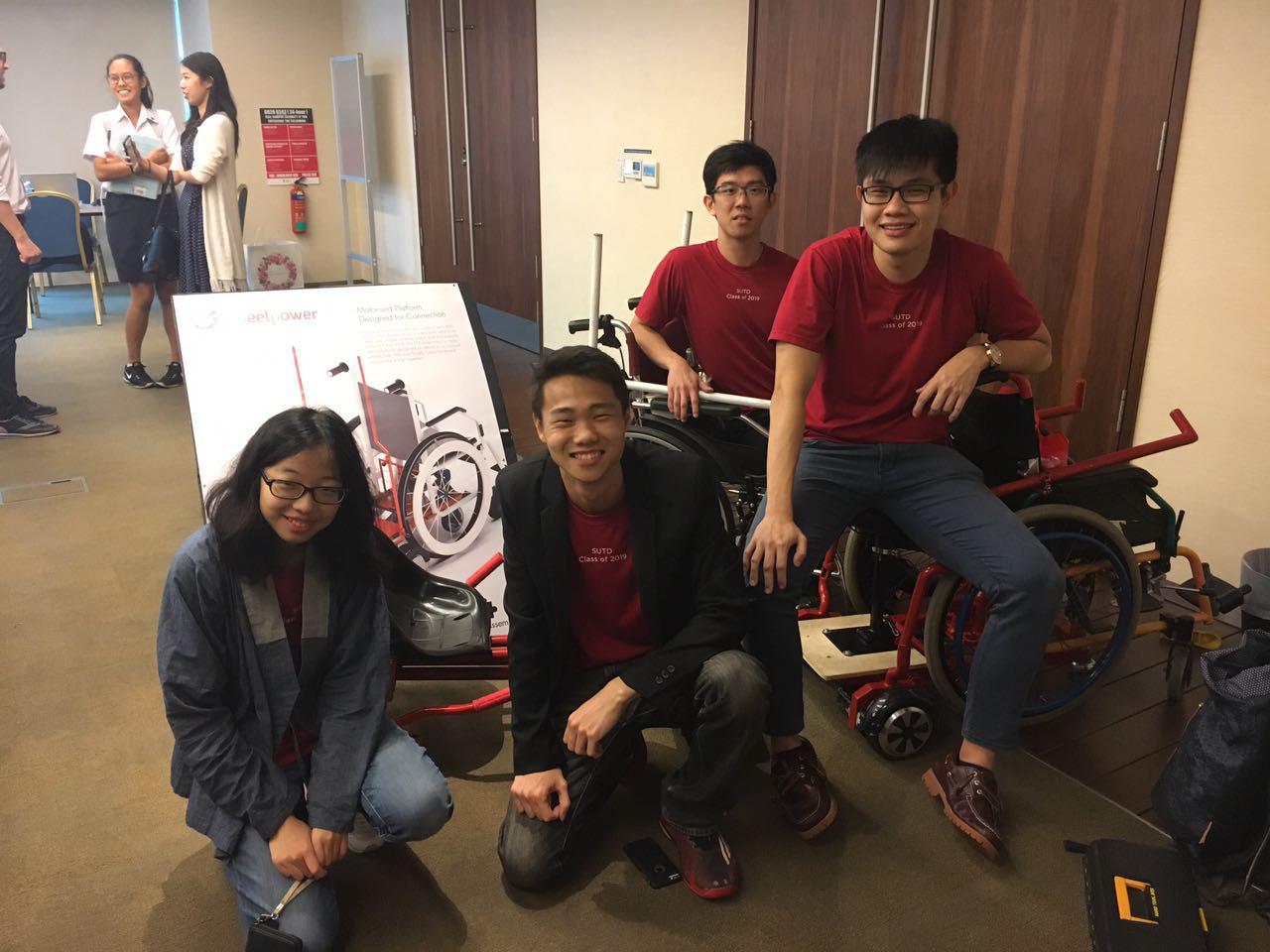 Ng and Ang with their team at the Create4Good competition. Photo courtesy of Jonathan Ang.
Ng and Ang with their team at the Create4Good competition. Photo courtesy of Jonathan Ang.
Ng: The podcast episode was titled "Why everyone must take a gap year to not lose out", but I think more accurately, it should be called "Why everyone should consider taking a gap year to not lose out".
Because, yeah, it's not for everyone. It's ideal, because, like I said before, you have one whole year, and if a whole year you're thinking, "How can I increase my earning power?", the chances are, you're going to succeed that. It's just about the extent.
So I would say it is a pity if you really have no choice and you have to start earning immediately, but like Jang said, there are many side hustles that you can do.
Any final words of advice for students who might be interested in taking a gap year?
Ng: If you really want to become the best scientist in the world, then of course, you have to pursue and finish academia. [For some professions], of course you probably will need to finish school.
But for those who kind of feel like maybe studying is not the kind of thing that you really enjoy, there's nothing wrong with that.
Because there's nothing that suits everyone. So you've just got to take this time to find out what you want.
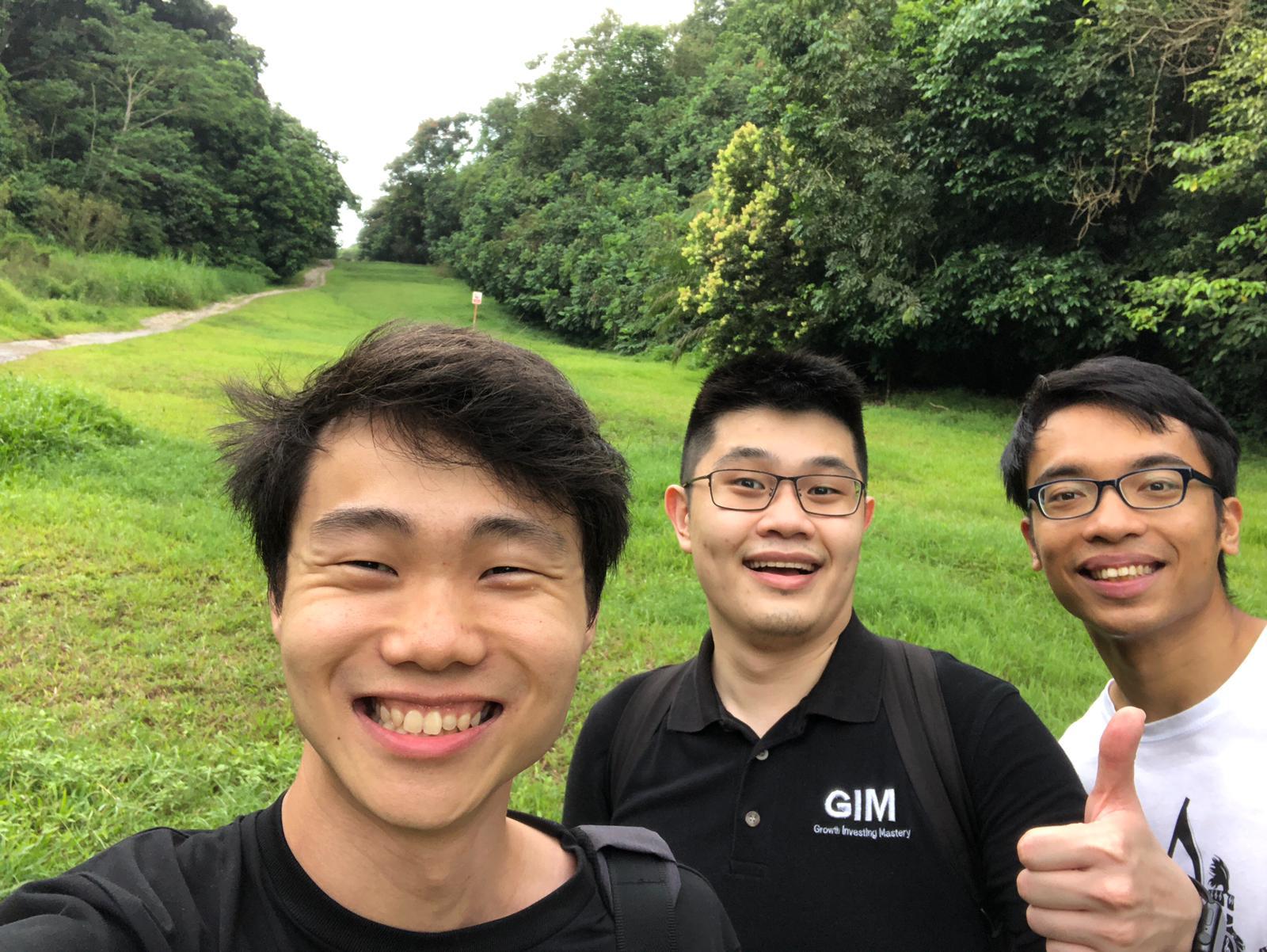 Ng, Ang, and Ng's co-founder Phang Jun Yu out on a hike recently. Photo courtesy of Jonathan Ng.
Ng, Ang, and Ng's co-founder Phang Jun Yu out on a hike recently. Photo courtesy of Jonathan Ng.
Top photos courtesy of Ang and Ng. Some quotes have been edited for grammar and clarity.
If you like what you read, follow us on Facebook, Instagram, Twitter and Telegram to get the latest updates.
